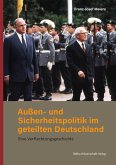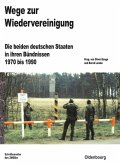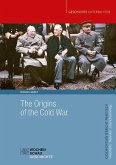Traditionally, the British Armed Forces did not care about doctrine. During the 1990s, however, they undertook intense efforts to explore, debate and publish doctrinal issues. They developed a coherent understanding of the military's role in a post-Cold War era characterised by regional instabilities and asymmetric threats. This conceptual evolution was triggered mainly by the strategic change from 1989 onwards, when Western security concepts shifted from nuclear deterrence and containment towards stability projection and crisis response. As a result, territorial defence forces were replaced by expeditionary and rapid reaction capabilities. Simultaneously, the military were also challenged by the need to absorb a surge of technological innovations and to adapt to a changing relationship with society at large.
This contemporary history study analyses Britain's doctrinal evolution from 1989 to 2002 in the light of these strategic, technological and social changes. It examines the emerging, specifically British post-Cold War military-strategic thinking and explains why doctrine, both single-service and joint, gained unprecedented relevance as an instrument of transformation in an increasingly complex environment.
This contemporary history study analyses Britain's doctrinal evolution from 1989 to 2002 in the light of these strategic, technological and social changes. It examines the emerging, specifically British post-Cold War military-strategic thinking and explains why doctrine, both single-service and joint, gained unprecedented relevance as an instrument of transformation in an increasingly complex environment.
«Das vorliegende Buch gibt einen sehr guten Eindruck von der Problematik der Ableitung der konzeptionellen Ausrichtung der britischen Streitkräfte von den sich laufend ändernden Umfeldbedingungen. [...] [es handelt] sich um ein bemerkenswertes Buch, das nicht nur für Streitkräfteplaner und -entwickler von Relevanz ist.» (K. Krasser, Österreichische Militärische Zeitschrift)
«...'In Pursuit of Conceptual Excellence' is core reading for academics, policy-makers, and the new generation of 'soldier-scholars' seeking to understand the content and direction of British post-Cold War military transformation. Its appeal should also extend to those seeking an analytical prism to understand doctrinal debates and reforms in other states.» (Matthew R. H. Uttley, The Journal of Military History)
«...'In Pursuit of Conceptual Excellence' is core reading for academics, policy-makers, and the new generation of 'soldier-scholars' seeking to understand the content and direction of British post-Cold War military transformation. Its appeal should also extend to those seeking an analytical prism to understand doctrinal debates and reforms in other states.» (Matthew R. H. Uttley, The Journal of Military History)








